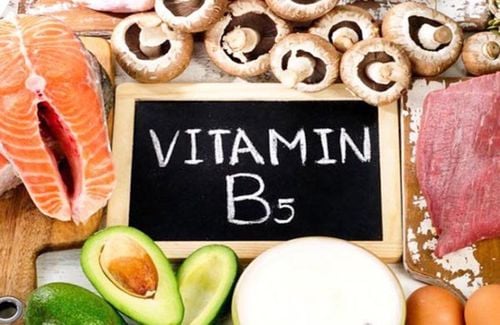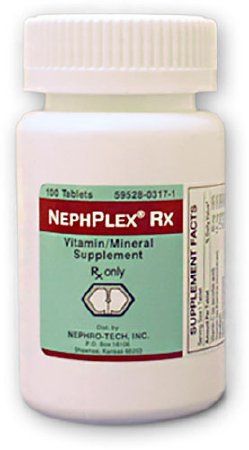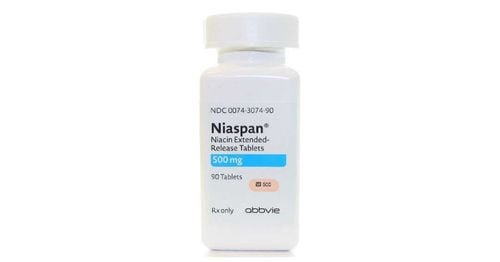This is an automatically translated article.
Currently, many parents do not know how to supplement vitamin B6 for children, leading to deficiency or excess, affecting the health and development of the baby. The following article will provide a full way to supplement vitamin B6 for children suitable for all families with young children.
1. Something about vitamin B6
Vitamin B6 also known as pyridoxine, helps the body convert food into fuel, which is needed for energy production. Like other B vitamins, vitamin B6 is needed for fat and protein metabolism and for healthy skin, hair, eyes and liver. Vitamin B6 is indispensable for the normal functioning of the nervous system. The body needs vitamin B6 to transmit signals from nerve cells to nerve cells, and it needs the vitamin to maintain normal brain function. The body uses vitamin B6 to make certain hormones, such as serotonin and norepinephrine, that affect mood. Working together with vitamins B12 and B9 (folate), vitamin B6 controls the level of homocysteine in the blood. Homocysteine is an amino acid that has been linked to heart disease.Vitamin B6 is water-soluble, but that doesn't mean it's safe for children. Before giving vitamin B6 or any other supplement to a child, parents should consult a pediatrician. Supplements cannot replace a healthy diet. Vitamin B6 is found in fortified cereals, beans, meat, poultry, fish, bananas, peanut butter, and many vegetables.
2. How to supplement vitamin B6 for children?
2.1. Effects of vitamin B6 on young children Vitamin B6 works for young children as follows:
Promotes brain development in children It is very important for children because it helps release brain chemicals such as serotonin, which regulates mood, and norepinephrine, which helps to cope with stress. Vitamin B6 helps convert tryptophan into niacin (vitamin B3), facilitating the metabolism of proteins, fats, and carbohydrates to work more easily. This B vitamin is also necessary for the fermentation reaction to create glucose from glycogen, which helps to maintain a stable blood sugar level. Helps protect the cardiovascular system, strengthen the immune system and maintain healthy brain function. In addition, vitamin B6 also plays an important role in the synthesis of hemoglobin and helps the nervous system and immune system to function effectively.
2.2. Symptoms of vitamin B6 deficiency in children Fatigue, irritability, irritability, mental confusion, little sleep Dry skin, chapped lips, hair loss

Thiếu vitamin b6 có thể khiến trẻ quấy khóc và ngủ ít, do đó cần bổ sung vitamin b6 cho trẻ.
2.3. Dosage The medical experts recommend vitamin b6 supplements for children as follows:
Children 1 - 3 years old: 30 mg/day Children 4 - 8 years old: 40 mg/day Children 9 - 13 years old: about 60mg/day. Recommended dosage for infants: For infants aged 0-6 months, only 0.1mg/day; Children in the period from 7 to 12 months old only use 0.3mg / day.
3. Tips moms need to know when supplementing with vitamin B6 for babies
Whether vitamins are in the form of drugs or functional foods, parents should keep them out of the reach of children. Mothers can use a way instead of rewarding children with ice cream or candy after every time the child does something, she will reward her child with a pill or a spoon of vitamin that is fragrant, easy to drink without scaring the child. Depending on your child's needs, you can choose to supplement with vitamin B6 in the form of water, tablets, or gummies. Note that vitamin B6 supplements for children are appropriate for their age If your child is taking any medication, consult your doctor to see if your child can take vitamin B6 with that medicine. This is done to avoid interactions that reduce the effect of the two drugs, or limit the risk of drug poisoning.
4. Foods that contain vitamin B6
The following section will give you more information about foods high in vitamin B6 to choose from.
Meat: When it comes to meat, many people immediately think of this as a source of high protein, but forget the vitamin B6 content contained in them as chicken provides 0.5 mg of vitamin B6 / 1 serving. Beef, pork, and lamb also have similar levels of vitamin B6. Fish: Salmon, cod, halibut, halibut... are fish that contain a lot of vitamin B6. Typically, just a small serving of tuna provides up to half of a child's essential vitamin B6 needs each day. Vegetables: Vitamin B6 content is especially high in some vegetables such as spinach, red bell peppers, broccoli, peas, radishes, baked potatoes with the skin on, asparagus. Not only are they a rich source of vitamin B6, but these vegetables also provide the body with vegetable fats, other vitamins and a variety of nutrients.

Cha mẹ có thể bổ sung vitamin b6 cho trẻ thông qua một số loại rau củ
It is not difficult for mothers to prepare steamed, stewed or cooked vegetables for their children that both stimulate the child's taste buds and bring many other health benefits. Fruit: Banana is the fruit with the highest vitamin B6 content, every 100 grams of bananas will provide about 0.3 grams of vitamin B6. Mothers can feed their children directly, make smoothies or eye-catching salads for children. Nuts: Nuts not only provide a lot of fiber, but also provide a large amount of vitamin B6. For example, 1 cup of sunflower seeds has up to 1.1 mg of Vitamin B6, or 0.8 mg of vitamin B6 in 100 grams of roasted sesame seeds. Snacks with nuts contain a lot of vitamin B6 not to mention cashews and peanuts. Whole Rice: Green beans, soybeans, and lentils are natural options that can help children avoid vitamin B6 deficiency. Mothers can easily prepare tea, stew, and sticky rice dishes with these nuts for children to change dishes. Molasses: Natural sweeteners found in sugarcane plants contain essential vitamins for the child's body. This will be a smart choice for mothers to supplement for children instead of refined sugars. This type of material can provide the child's body with 0.67mg of vitamin B6 per 100g serving. Liver: Organ foods such as gas are always known as rich sources of vitamin B6 for the child's body. However, if the mother gives the child too much liver, there is a risk of health problems because the liver contains a lot of cholesterol. Therefore, mothers should only let children consume this type of food in moderation.
In short, vitamin B6 is very good for the child's body, but mothers need to properly supplement it for their children to promote effectiveness as well as limit side effects. In addition, the baby should also be supplemented with necessary micronutrients such as: Zinc, selenium, chromium, ginger, acerola fruit extract (vitamin C), ... to improve taste, eat delicious, reach afternoon Tall and correct weight and over the standard, good immune system, enhanced resistance to less sickness as well as less digestive problems.
For more nutritional knowledge and child care for each age, parents should regularly visit the website vimec.com and make an appointment with the leading doctors, pediatric and nutrition experts of the National General Hospital. Vinmec when needing advice on children's health.













